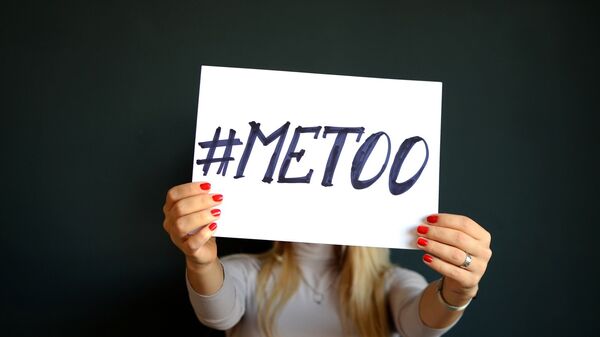Humeira Saghib, psychologist and well-known Afghan female activist, told Sputnik about #MeToo in the country and explained some of the reasons for women’s reluctance to join the movement and speak out publicly.
“Very often women face sexual harassment when they attempt to solve some kind of problems because if you don’t have a “mediator or money,” you have to offer your body, which unfortunately is widely spread within governmental and non-governmental organizations.”
Saghib confessed that women do not feel free to speak about the issue of sexual abuse, and very few can pull themselves together to address the challenge without any fear or shame. The activist added that Afghan society has always blamed everything on women, and put those who tried to help them in difficult positions by criticizing them and creating more problems.
“Unfortunately, even educated women fear to expose the facts, because if their families find out, they may prevent them from studying and working. A majority of women, therefore, are afraid of going public. Nevertheless, we managed to launch #MeToo in Afghanistan.”
Saghib proceeded to say that the problem is rooted in the extremely traditional and conservative Afghan society, which never respected women’s rights in the same way such lofty notions as “conscious” and “honor” have been interpreted in other societies.
“We can witness the fall of a famous man because of a fake Facebook post.”
But Saghib stresses that it is really hard for a person to try to prove he’s innocent in Afghanistan, as it is impossible to defend oneself because of the baseless and hasty condemnation he will face in society, which makes it even harder to change people’s hearts and minds. Saghib elaborated that sometimes such accusations have led to divorces, stoning of women and even murders.
“On the one hand, our society has shifted towards extremism, traditional religion failed to keep up with the times. On the other hand, a lack of fresh knowledge about religion becomes a challenge for women in society – another argument that extremists can use to restrict women’s rights and freedoms. That’s why #MeToo was indispensable to women so that they could challenge patriarchy.”
Saghib believes that the campaign takes aim at bringing changes to people’s minds.
“Fortunately, the active involvement of young people has contributed to some advances in conventional Afghan society. There is a hope that people’s perception will change; they will realize that women, mainly, are not to blame for becoming subjects to violence and sexual harassment – the majority of females are miserable victims of unfairness.”
As for the efficiency of such a campaign, Saghib said that she did not expect any results given the rampant corruption in the government.
“Success of #MeToo is one thing, and freedom to discuss the issue is another. Struggle for gender equality and women rights are considered a challenge to men’s predominance. Unfortunately, female politicians have dodged the campaign and almost ignored it, taking into account their considerations over their jobs. I appreciate the support expressed by young women, who have shown courage and enthusiasm within the movement.”
READ MORE: 'Now We Are Awake': Swedish Opera Singers Join #Metoo in Support of Female Peers
The #MeToo movement emerged in the wake of public revelations of sexual harassment accusations against influential Hollywood film producer Harvey Weinstein.
The scandal has opened a Pandora’s box for many other powerful men, who have also been accused of sexual misconduct, with many having lost their jobs and left with their reputations ruined.





